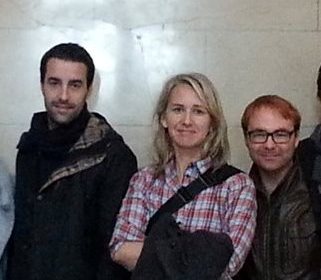Theme Leader: Dr Tommy Isirdorsson, UGOT
Researchers: Pille Strauss-Raats, UGOT; Pedro Mendonca, Strath; Lauren Deprez, UEVE and Julia Kubisa, UGOT
Specific objective:
• to examine the impact of contemporary forms of work and employment flexibility (‘flexicurity’ or ‘precariousness’) on the quality of working life.
Background:
Specific methodologies are utilised to ensure ESRs’ familiarisation with and the necessary skills to analyse current databases, measures and statistics relating to European work-life quality/wellbeing. Workplace surveys will be conducted with different employee categories including temporary agency workers and user firm employees. This will be supplemented by analysis of national agency employment data vis a vis national and international rise in agency work and its impact on notions of workplace and employment security-insecurity; and a study of relevant employment agreements at both national, sectoral and company level. The comparative analysis takes into account the capacity of industrial relations actors at the enterprise or organisational level to establish and coordinate flexicurity practices via bargaining mechanisms. Projects will develop comparative research on work-life across two occupational groups in conjunction with two Associated Partners. Utilising workplace surveys and interviews in the UK and France, research will examine the nature of change and its impact upon employees and managers in these contrasting sectors. Team synergies and complementarities with private sector actors will be achieved.
Extract from Changing Employment in Europe report:
Integrated in the broader objective of the Changing Employment Programme Theme 3 looks specifically to the employee wellbeing and working life quality. Members of Theme 3 have met regularly to discuss common methodologies and shared understandings of the notion of job quality and the quality of working life in a changing Europe. Members of the theme are particularly concerned with exploring the impact of the changing economic context on job quality. Comparative research evidence will enable the theme to explore the impact of particular institutional arrangements and labour market regulation on the quality of working life within this changing context. Meetings of the ESRs have taken place in Leuven, Strathclyde and Gothenburg and have been supported by the academic supervisors in each of the host institutions.
Dissemination: Regular theme 3 communication, sharing of literatures, and the presentation of discussion papers have contributed to theme 3 identifying commonalities and areas of mutual interest. A number of future conferences have been identified as key arenas within which to present the ideas of the theme.
Find out what else Theme 3 ESRs are currently working on.

Theme 3 Fellows, L to R : Pedro Mendonca, Pille Strauss-Raats, Laurens Deprez